WEF
-
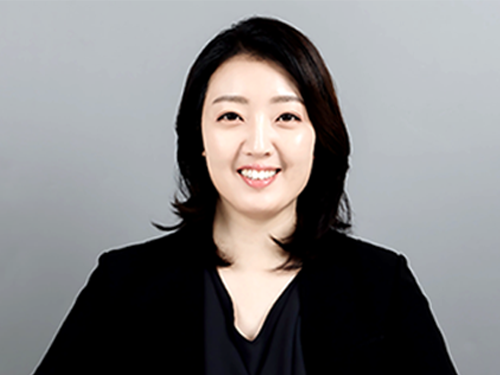 Professor Sue-Hyun Lee Listed Among WEF 2020 Young Scientists
Professor Sue-Hyun Lee from the Department of Bio and Brain Engineering joined the World Economic Forum (WEF)’s Young Scientists Community on May 26. The class of 2020 comprises 25 leading researchers from 14 countries across the world who are at the forefront of scientific problem-solving and social change. Professor Lee was the only Korean on this year’s roster.
The WEF created the Young Scientists Community in 2008 to engage leaders from the public and private sectors with science and the role it plays in society. The WEF selects rising-star academics, 40 and under, from various fields every year, and helps them become stronger ambassadors for science, especially in tackling pressing global challenges including cybersecurity, climate change, poverty, and pandemics.
Professor Lee is researching how memories are encoded, recalled, and updated, and how emotional processes affect human memory, in order to ultimately direct the development of therapeutic methods to treat mental disorders. She has made significant contributions to resolving ongoing debates over the maintenance and changes of memory traces in the brain.
In recognition of her research excellence, leadership, and commitment to serving society, the President and the Dean of the College of Engineering at KAIST nominated Professor Lee to the WEF’s Class of 2020 Young Scientists Selection Committee. The Committee also acknowledged Professor Lee’s achievements and potential for expanding the boundaries of knowledge and practical applications of science, and accepted her into the Community.
During her three-year membership in the Community, Professor Lee will be committed to participating in WEF-initiated activities and events related to promising therapeutic interventions for mental disorders and future directions of artificial intelligence.
Seven of this year’s WEF Young Scientists are from Asia, including Professor Lee, while eight are based in Europe. Six study in the Americas, two work in South Africa, and the remaining two in the Middle East. Fourteen, more than half, of the newly announced 25 Young Scientists are women.
(END)
2020.05.26 View 14892
Professor Sue-Hyun Lee Listed Among WEF 2020 Young Scientists
Professor Sue-Hyun Lee from the Department of Bio and Brain Engineering joined the World Economic Forum (WEF)’s Young Scientists Community on May 26. The class of 2020 comprises 25 leading researchers from 14 countries across the world who are at the forefront of scientific problem-solving and social change. Professor Lee was the only Korean on this year’s roster.
The WEF created the Young Scientists Community in 2008 to engage leaders from the public and private sectors with science and the role it plays in society. The WEF selects rising-star academics, 40 and under, from various fields every year, and helps them become stronger ambassadors for science, especially in tackling pressing global challenges including cybersecurity, climate change, poverty, and pandemics.
Professor Lee is researching how memories are encoded, recalled, and updated, and how emotional processes affect human memory, in order to ultimately direct the development of therapeutic methods to treat mental disorders. She has made significant contributions to resolving ongoing debates over the maintenance and changes of memory traces in the brain.
In recognition of her research excellence, leadership, and commitment to serving society, the President and the Dean of the College of Engineering at KAIST nominated Professor Lee to the WEF’s Class of 2020 Young Scientists Selection Committee. The Committee also acknowledged Professor Lee’s achievements and potential for expanding the boundaries of knowledge and practical applications of science, and accepted her into the Community.
During her three-year membership in the Community, Professor Lee will be committed to participating in WEF-initiated activities and events related to promising therapeutic interventions for mental disorders and future directions of artificial intelligence.
Seven of this year’s WEF Young Scientists are from Asia, including Professor Lee, while eight are based in Europe. Six study in the Americas, two work in South Africa, and the remaining two in the Middle East. Fourteen, more than half, of the newly announced 25 Young Scientists are women.
(END)
2020.05.26 View 14892 -
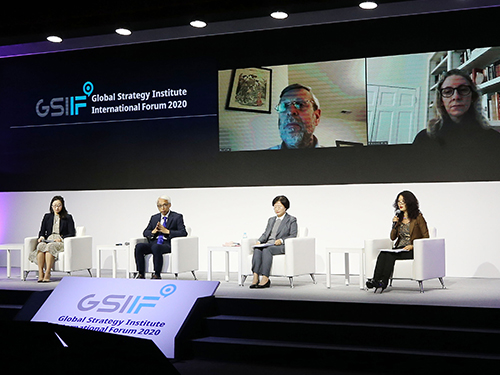 Long Economic Depressions and Disparities Loom in the Wake of the COVID-19
"Global Cooperation for Managing Data Key to Mitigating the Impacts Around the World"
<Full recorded video of the GSI-IF2020>
The COVID-19 pandemic will lead to long economic depressions around the entire world. Experts predicted that the prevalent inequities among the countries, regions, and individuals will aggravate the economic crisis. However, crises always come with new opportunities and international cooperation and solidarity will help creating a new normal in the post-coronavirus era.
In a very basic but urgent step, global cooperation for managing data is the key to respond to COVID-19 since medicine and healthcare are intertwined with data science, said experts during an online international forum hosted by the Global Strategy Institute at KAIST on April 22.
KAIST launched its think-tank, the Global Strategy Institute (GSI), in February. The GSI aims to identify global issues proactively and help make breakthroughs well aligned with solid science-based policies.
The inaugural forum of the GSI focused on how the COVID-19 pandemic would impact socio-economic, scientific, and political landscapes, under the theme “Global Cooperation in the Coronavirus Era.”
In his opening remarks, KAIST President Sung-Chul Shin stressed that future global governance will be dominated by the power of science and technology. “If we can implement efficient policies together with troubleshooting technology for responding to future crises, we will emerge stronger than before,” he said.
President Shin said ‘the Korean model’, which is being recognized as a shining example for dealing with the pandemic, is the result of collaborations combining the creativity of the private sector, the public sector’s strong infrastructure, and the full support of the citizens. He added, “Without the technological prowess coming from the competent R&D power of Korea, we could not achieve these impressive results.”
“Creative collaboration among the private and public sectors, along with research universities from around the world, will help shore up global resilience against the epidemic. We should work together to build a world of growing prosperity,” President Shin said.
Prime Minister Sye-Kyun Chung, who is in charge of the Central Disaster and Safety Countermeasures Headquarters in Korea, stressed global solidarity in his welcoming remarks, saying that “We need to share information and rely on the strength of our connections, rather than retreating into nationalistic isolation.”
Peter Lee, Vice President of the Microsoft Healthcare, pointed out in his welcoming remarks three critical sectors for global cooperation: medicine and healthcare, public health and prevention, and life and the economy. He emphasized the rule of thumb for managing data, saying that data in these fields should be open, standardized, and shared among countries to combat this global pandemic.
During a keynote session, Director General of the International Vaccine Institute (IVI) Jerome Kim described the challenges that go along with developing a vaccine. Dr. Kim said that only 7% of vaccine candidates go through the clinical trial stages, and it will take five to 10 years to completely prove a new vaccine’s safety after completing three stages of clinical tests.
“It’s very challenging to develop the vaccine for COVID-19 within 12 to 15 months,” said Dr. Kim. He added that 78 out of 115 candidates are currently undergoing clinical trials around the world.
There are five groups, including Moderna, Inovio, Jenner Institute, CanSino, and the Beijing Institute of Biological Products, who are doing clinical trials in phases 1 and 2. “Given the fact that COVID-19 is a totally new type of virus, various stakeholders’ participation, such as the National Immunization Technical Advisory Groups, the WHO, and UNICEF, is needed to work together to benefit the entire world,” he pointed out.
Professor Edward Yoonjae Choi from the Graduate School of AI at KAIST shared how AI and data sciences are being utilized to interpret the major trends of the epidemic. His group mainly focuses on deep learning to model electronic health records (EHR) for disease predictions. Professor Choi said AI and machine learning would be crucial solutions and collaborative research projects will surely accelerate how quickly we can overcome the pandemic.
In addition, Dr. Kijung Shin’s group is interpreting the SIR (Susceptible, Infected, and Recovered) model in Korea to predict the number of infections and when people were infected. However, researchers noticed that they could not see the typical modeling in Korea for predicting the number of infections since the model disregarded the new variable of humans’ efforts to stop the spread the virus.
According to research by Professor Steven Whang’s group on social distancing and face mask distribution among vulnerable age groups, people in their 20s, 60s, and 70s followed the social distancing guidelines the most strictly. The research team analyzed the data provided by SK Telecom in the Gangnam district of Seoul. The data provided on people in their 70s, a group that accounted for half of all fatalities, showed that masks were generally well distributed nationwide.
Dr. Alexandros Papaspyrids, Tertiary Education Industry Director of the Asia region of Microsoft, said that despite all the disadvantages and problems related to remote education, we shouldn’t expect to return to the days before the COVID-19 any time soon. “We should accept the new normal and explore new opportunities in the new educational environment,” he said.
Hongtaek Yong, Deputy Minister at the Office of R&D Policy at the Ministry of Science and ICT presented the Korean government’s disease prevention and response policy and how they tried to mitigate the economic and social impact.
He stressed the government’s fast testing, tracing, and openness for successfully flattening the curve, adding that the government used an ICT-based approach in all aspects of their response. From early this year when the first patient was reported, the government aggressively encouraged the biotech industry to develop diagnostic kits and novel therapeutic medications.
As a result, five companies were able to produce genetic diagnostic reagents through the emergency approval. More notably, four of them are conducting massive R&D projects sponsored by the government and this is the result of the government’s continuous investment in R&D. Korea is the leader in R&D investment among the OECD countries.
According to Yong, the government’s big data project that was launched in 2017 continuously traces the trends of epidemics in Korea. The epidemiological studies based on the paths taken by suspected patients using credit card transaction made the difference in predicting the spread of the coronavirus and implementing countermeasures. The data has been provided to the Korea’s Center for Disease Control (CDC).
“In addition to the epidemics, we have so many other pending issues arising from digital and social equities, un-contact services, and job security. We are very open to collaborate and cooperate with other countries to deal with this global crisis,” Yong said.
During the subsequent panel discussions, David Dollar, a senior fellow at the Brookings Institution, said, “The global economy in the coronavirus era will not have a rapid V-shaped recovery, but rather will fall into a long depression for at least two years.” He pointed out that if countries practice protectionism like they did during the Great Depression, the recession will be even worse. Hence, he urged the international community, especially developed nations, to avoid protectionism, consider the economic difficulties of developing countries, and provide them with financial support.
Co-Director of the Center for Universal Education at the Brookings Institution Rebecca Winthrop raised concerns over the recent shift to online teaching and learning, claiming that insufficient infrastructures in low-income families in developing nations are already causing added educational disparities and provoking the inequity issue around the world. “The ways to provide quality education equally through faster and more effective means should be studied,” she said.
Professor Joungho Kim, the director of the KAIST GSI and the forum’s organizer, concluded the event by saying that this forum will be a valuable resource for everyone who is providing assistance to those in need, both during and after the COVID-19 pandemic.
(END)
2020.04.22 View 25954
Long Economic Depressions and Disparities Loom in the Wake of the COVID-19
"Global Cooperation for Managing Data Key to Mitigating the Impacts Around the World"
<Full recorded video of the GSI-IF2020>
The COVID-19 pandemic will lead to long economic depressions around the entire world. Experts predicted that the prevalent inequities among the countries, regions, and individuals will aggravate the economic crisis. However, crises always come with new opportunities and international cooperation and solidarity will help creating a new normal in the post-coronavirus era.
In a very basic but urgent step, global cooperation for managing data is the key to respond to COVID-19 since medicine and healthcare are intertwined with data science, said experts during an online international forum hosted by the Global Strategy Institute at KAIST on April 22.
KAIST launched its think-tank, the Global Strategy Institute (GSI), in February. The GSI aims to identify global issues proactively and help make breakthroughs well aligned with solid science-based policies.
The inaugural forum of the GSI focused on how the COVID-19 pandemic would impact socio-economic, scientific, and political landscapes, under the theme “Global Cooperation in the Coronavirus Era.”
In his opening remarks, KAIST President Sung-Chul Shin stressed that future global governance will be dominated by the power of science and technology. “If we can implement efficient policies together with troubleshooting technology for responding to future crises, we will emerge stronger than before,” he said.
President Shin said ‘the Korean model’, which is being recognized as a shining example for dealing with the pandemic, is the result of collaborations combining the creativity of the private sector, the public sector’s strong infrastructure, and the full support of the citizens. He added, “Without the technological prowess coming from the competent R&D power of Korea, we could not achieve these impressive results.”
“Creative collaboration among the private and public sectors, along with research universities from around the world, will help shore up global resilience against the epidemic. We should work together to build a world of growing prosperity,” President Shin said.
Prime Minister Sye-Kyun Chung, who is in charge of the Central Disaster and Safety Countermeasures Headquarters in Korea, stressed global solidarity in his welcoming remarks, saying that “We need to share information and rely on the strength of our connections, rather than retreating into nationalistic isolation.”
Peter Lee, Vice President of the Microsoft Healthcare, pointed out in his welcoming remarks three critical sectors for global cooperation: medicine and healthcare, public health and prevention, and life and the economy. He emphasized the rule of thumb for managing data, saying that data in these fields should be open, standardized, and shared among countries to combat this global pandemic.
During a keynote session, Director General of the International Vaccine Institute (IVI) Jerome Kim described the challenges that go along with developing a vaccine. Dr. Kim said that only 7% of vaccine candidates go through the clinical trial stages, and it will take five to 10 years to completely prove a new vaccine’s safety after completing three stages of clinical tests.
“It’s very challenging to develop the vaccine for COVID-19 within 12 to 15 months,” said Dr. Kim. He added that 78 out of 115 candidates are currently undergoing clinical trials around the world.
There are five groups, including Moderna, Inovio, Jenner Institute, CanSino, and the Beijing Institute of Biological Products, who are doing clinical trials in phases 1 and 2. “Given the fact that COVID-19 is a totally new type of virus, various stakeholders’ participation, such as the National Immunization Technical Advisory Groups, the WHO, and UNICEF, is needed to work together to benefit the entire world,” he pointed out.
Professor Edward Yoonjae Choi from the Graduate School of AI at KAIST shared how AI and data sciences are being utilized to interpret the major trends of the epidemic. His group mainly focuses on deep learning to model electronic health records (EHR) for disease predictions. Professor Choi said AI and machine learning would be crucial solutions and collaborative research projects will surely accelerate how quickly we can overcome the pandemic.
In addition, Dr. Kijung Shin’s group is interpreting the SIR (Susceptible, Infected, and Recovered) model in Korea to predict the number of infections and when people were infected. However, researchers noticed that they could not see the typical modeling in Korea for predicting the number of infections since the model disregarded the new variable of humans’ efforts to stop the spread the virus.
According to research by Professor Steven Whang’s group on social distancing and face mask distribution among vulnerable age groups, people in their 20s, 60s, and 70s followed the social distancing guidelines the most strictly. The research team analyzed the data provided by SK Telecom in the Gangnam district of Seoul. The data provided on people in their 70s, a group that accounted for half of all fatalities, showed that masks were generally well distributed nationwide.
Dr. Alexandros Papaspyrids, Tertiary Education Industry Director of the Asia region of Microsoft, said that despite all the disadvantages and problems related to remote education, we shouldn’t expect to return to the days before the COVID-19 any time soon. “We should accept the new normal and explore new opportunities in the new educational environment,” he said.
Hongtaek Yong, Deputy Minister at the Office of R&D Policy at the Ministry of Science and ICT presented the Korean government’s disease prevention and response policy and how they tried to mitigate the economic and social impact.
He stressed the government’s fast testing, tracing, and openness for successfully flattening the curve, adding that the government used an ICT-based approach in all aspects of their response. From early this year when the first patient was reported, the government aggressively encouraged the biotech industry to develop diagnostic kits and novel therapeutic medications.
As a result, five companies were able to produce genetic diagnostic reagents through the emergency approval. More notably, four of them are conducting massive R&D projects sponsored by the government and this is the result of the government’s continuous investment in R&D. Korea is the leader in R&D investment among the OECD countries.
According to Yong, the government’s big data project that was launched in 2017 continuously traces the trends of epidemics in Korea. The epidemiological studies based on the paths taken by suspected patients using credit card transaction made the difference in predicting the spread of the coronavirus and implementing countermeasures. The data has been provided to the Korea’s Center for Disease Control (CDC).
“In addition to the epidemics, we have so many other pending issues arising from digital and social equities, un-contact services, and job security. We are very open to collaborate and cooperate with other countries to deal with this global crisis,” Yong said.
During the subsequent panel discussions, David Dollar, a senior fellow at the Brookings Institution, said, “The global economy in the coronavirus era will not have a rapid V-shaped recovery, but rather will fall into a long depression for at least two years.” He pointed out that if countries practice protectionism like they did during the Great Depression, the recession will be even worse. Hence, he urged the international community, especially developed nations, to avoid protectionism, consider the economic difficulties of developing countries, and provide them with financial support.
Co-Director of the Center for Universal Education at the Brookings Institution Rebecca Winthrop raised concerns over the recent shift to online teaching and learning, claiming that insufficient infrastructures in low-income families in developing nations are already causing added educational disparities and provoking the inequity issue around the world. “The ways to provide quality education equally through faster and more effective means should be studied,” she said.
Professor Joungho Kim, the director of the KAIST GSI and the forum’s organizer, concluded the event by saying that this forum will be a valuable resource for everyone who is providing assistance to those in need, both during and after the COVID-19 pandemic.
(END)
2020.04.22 View 25954 -
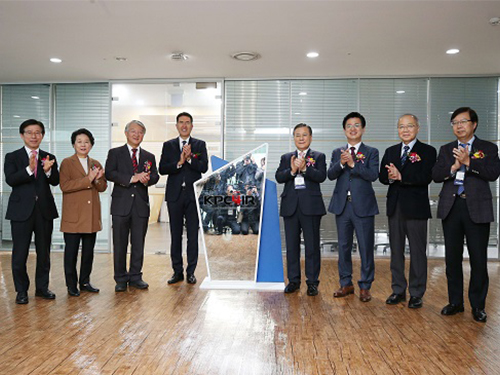 Korea Policy Center for the Fourth Industrial Revolution Opens
The World Economic Forum’s Center for the Fourth Industrial Revolution opened its Korean affiliate center at KAIST on December 10. The Korea Policy Center for the 4th Industrial Revolution (KPC4IR) will develop policy norms and frameworks for accelerating the benefits of emerging technologies.
Many dignitaries including KAIST President Sung-Chul Shin, National Assemblyman Sang-Min Lee, Daejeon City Mayor Her Tae-Jeong, and Managing Director of the WEF Center for the Fourth Industrial Revolution Murat Sonmez attended the opening ceremony.
The center will play a vital role in helping to shape the development of national Fourth Industrial Revolution strategies and public-private initiatives. The Center will actively engage with the government on policy design and piloting activities.
The Center is the result of KAIST’s close partnership with the WEF and its Center for the Fourth Industrial Revolution in San Francisco. KAIST signed an MOU with the WEF in 2017 for this collaboration. Dr. Klaus Schwab expressed his high hopes many times regarding Korea’s potential in responding to the Fourth Industrial Revolution. In addition, he said that KAIST and the City of Daejeon would play a significant role in helping the Fourth Industrial Revolution move forward.
During a meeting with President Moon Jae-In last June, Dr. Schwab expressed his strong desire to collaborate with Korea, and the Korean government designated KAIST as an affiliate center of the WEF.
The KPC4IR had already begun conducting policy research in the areas of block chain and precision medicine even before making a partnership with the WEF. The director of the Center, Distinguished Professor Sang Yup Lee, said, “We have focused on the development of technology but rarely talk about governance. Technology should come with policy. We will conduct policy development on how to ensure inclusive growth capitalizing on emerging technologies. We will also make policy guidelines for technological applications after considering all the ethical perspectives.
President Shin also said in his opening remarks, “Korea has been a fast follower over the past decades in making economic development and innovations. I believe that the Fourth Industrial Revolution gives us the best opportunity to play the role of ‘first mover.’ I look forward to the KPC4IR serving as a ‘Think and Do’ tank, not limiting itself to the role of ‘think tank.’ We will continue to work closely with the WEF in the fields of AI, blockchain, and precision medicine.
2019.12.10 View 10526
Korea Policy Center for the Fourth Industrial Revolution Opens
The World Economic Forum’s Center for the Fourth Industrial Revolution opened its Korean affiliate center at KAIST on December 10. The Korea Policy Center for the 4th Industrial Revolution (KPC4IR) will develop policy norms and frameworks for accelerating the benefits of emerging technologies.
Many dignitaries including KAIST President Sung-Chul Shin, National Assemblyman Sang-Min Lee, Daejeon City Mayor Her Tae-Jeong, and Managing Director of the WEF Center for the Fourth Industrial Revolution Murat Sonmez attended the opening ceremony.
The center will play a vital role in helping to shape the development of national Fourth Industrial Revolution strategies and public-private initiatives. The Center will actively engage with the government on policy design and piloting activities.
The Center is the result of KAIST’s close partnership with the WEF and its Center for the Fourth Industrial Revolution in San Francisco. KAIST signed an MOU with the WEF in 2017 for this collaboration. Dr. Klaus Schwab expressed his high hopes many times regarding Korea’s potential in responding to the Fourth Industrial Revolution. In addition, he said that KAIST and the City of Daejeon would play a significant role in helping the Fourth Industrial Revolution move forward.
During a meeting with President Moon Jae-In last June, Dr. Schwab expressed his strong desire to collaborate with Korea, and the Korean government designated KAIST as an affiliate center of the WEF.
The KPC4IR had already begun conducting policy research in the areas of block chain and precision medicine even before making a partnership with the WEF. The director of the Center, Distinguished Professor Sang Yup Lee, said, “We have focused on the development of technology but rarely talk about governance. Technology should come with policy. We will conduct policy development on how to ensure inclusive growth capitalizing on emerging technologies. We will also make policy guidelines for technological applications after considering all the ethical perspectives.
President Shin also said in his opening remarks, “Korea has been a fast follower over the past decades in making economic development and innovations. I believe that the Fourth Industrial Revolution gives us the best opportunity to play the role of ‘first mover.’ I look forward to the KPC4IR serving as a ‘Think and Do’ tank, not limiting itself to the role of ‘think tank.’ We will continue to work closely with the WEF in the fields of AI, blockchain, and precision medicine.
2019.12.10 View 10526 -
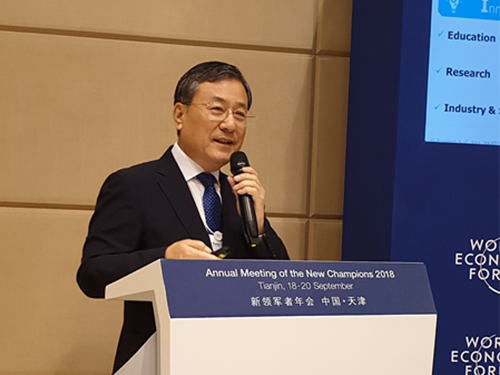 President Shin Presents Opportunities & Challenges of the 4IR at the Summer Davos Forum
(President Shin makes a keynote speech at the 2018 Summer Davos Forum in China on Sept.20.)
KAIST co-hosted the Asia Session with the World Economic Forum during the 2018 Summer Davos Forum in Tianjin, China from September 18 through 20. The session highlighted regional collaboration in Asia to promote inclusive growth in the Fourth Industrial Revolution.
KAIST is working closely with the WEF to take the lead in the Fourth Industrial Revolution. Last July, KAIST established the Fourth Industrial Revolution Information Center (FIRIC) at the KAIST Institute and signed an MOU with the Center for the Fourth Industrial Revolution (C4IR) at the WEF in October. The session is a follow-up event KAIST and the C4IR agreed to last year during the Roundtable Session held in Seoul.
Many experts in new emerging industries as well as many project directors, including Director Murat Sonmez of the C4IR, attended the session KAIST hosted. Director Chizuru Suga at the C4IR in Japan, Director Danil Kerimi in China, and Director Shailesh Sharda in India also attended the session and discussed ways to expand collaboration and networks among the countries.
In his keynote speech at the session on September 20, President Sung-Chul Shin presented how the Korean government is trying to drive the economy by strategically investing in focused industries in the new global industrial environment. President Shin introduced the government’s strategic roadmap to build the competitiveness of emerging technologies such as AI, blockchain, and precision medicine.
He also stressed that the three components of innovation, collaboration, and speed should be prioritized in all sectors for the successful realization of the Fourth Industrial Revolution. For instance, innovation in education, research, and technology commercialization, expansive domestic and international collaboration beyond the private and public sectors, speedy deregulation, and efficient governance will all be critical.
He also said that KAIST will launch new pilot collaboration projects along with the WEF soon. “We paved the way for leading the network with major countries including Japan and India for advancing the Fourth Industrial Revolution through this session,” President Shin said.
2018.09.21 View 9994
President Shin Presents Opportunities & Challenges of the 4IR at the Summer Davos Forum
(President Shin makes a keynote speech at the 2018 Summer Davos Forum in China on Sept.20.)
KAIST co-hosted the Asia Session with the World Economic Forum during the 2018 Summer Davos Forum in Tianjin, China from September 18 through 20. The session highlighted regional collaboration in Asia to promote inclusive growth in the Fourth Industrial Revolution.
KAIST is working closely with the WEF to take the lead in the Fourth Industrial Revolution. Last July, KAIST established the Fourth Industrial Revolution Information Center (FIRIC) at the KAIST Institute and signed an MOU with the Center for the Fourth Industrial Revolution (C4IR) at the WEF in October. The session is a follow-up event KAIST and the C4IR agreed to last year during the Roundtable Session held in Seoul.
Many experts in new emerging industries as well as many project directors, including Director Murat Sonmez of the C4IR, attended the session KAIST hosted. Director Chizuru Suga at the C4IR in Japan, Director Danil Kerimi in China, and Director Shailesh Sharda in India also attended the session and discussed ways to expand collaboration and networks among the countries.
In his keynote speech at the session on September 20, President Sung-Chul Shin presented how the Korean government is trying to drive the economy by strategically investing in focused industries in the new global industrial environment. President Shin introduced the government’s strategic roadmap to build the competitiveness of emerging technologies such as AI, blockchain, and precision medicine.
He also stressed that the three components of innovation, collaboration, and speed should be prioritized in all sectors for the successful realization of the Fourth Industrial Revolution. For instance, innovation in education, research, and technology commercialization, expansive domestic and international collaboration beyond the private and public sectors, speedy deregulation, and efficient governance will all be critical.
He also said that KAIST will launch new pilot collaboration projects along with the WEF soon. “We paved the way for leading the network with major countries including Japan and India for advancing the Fourth Industrial Revolution through this session,” President Shin said.
2018.09.21 View 9994 -
 WEF-KAIST to Host a Forum Next April in Korea
(President Shin poses with Chairman Schwab at the meeting in Dubai)
President Sung-Chul Shin and Executive Chairman Klaus Schwab of the World Economic Forum agreed to co-host the Fourth Industrial Revolution Forum next April in Seoul during a meeting at the WEF Global Future Councils 2017 held in Dubai November 11-12.
Next April’s forum will be a follow-up event of the roundtable discussion KAIST and the WEF Center for the Fourth Industrial Revolution co-hosted in October in Seoul. The two hosted the roundtable discussion titled “Mastering the Fourth Industrial Revolution: The Future of Jobs and Inclusive Growth in Korea.”
During the annual meeting in Dubai, Chairman Schwab expressed his deep appreciation to President Shin for hosting the roundtable discussion and proposed a full-fledged forum in partnership with KAIST once again, which Chairman Schwab will be scheduled to attend.
Chairman Schwab emphasized once again that Korea, who has the world’s top high-end technologies such as 5G telecommunications and semiconductor memory, will be the best fit to realize the Fourth Industrial Revolution most rapidly. He also expressed his great interest in the city of Daejeon in which is being considered to become the Special City for the Fourth Industrial Revolution.
The Global Future Council of the WEF is the interdisciplinary knowledge network dedicated to promoting innovative thinking on the future. The annual council convenes in Dubai the most relevant and knowledgeable thought leaders from academia, government, business, and civil society to challenge conventional thinking and develop new insights and perspectives on key global systems, as well as the impact and governance of key emerging technologies. This year, more than 850 world-leading experts from 74 countries participated.
Under the theme of ‘Vision 2030,’ participants explored systematic changes in key areas such as energy, mobility, and infrastructure while reflecting on the impact of technological breakthroughs in artificial intelligence, biotechnology, and other areas related to the Fourth Industrial Revolution.
2017.11.13 View 11334
WEF-KAIST to Host a Forum Next April in Korea
(President Shin poses with Chairman Schwab at the meeting in Dubai)
President Sung-Chul Shin and Executive Chairman Klaus Schwab of the World Economic Forum agreed to co-host the Fourth Industrial Revolution Forum next April in Seoul during a meeting at the WEF Global Future Councils 2017 held in Dubai November 11-12.
Next April’s forum will be a follow-up event of the roundtable discussion KAIST and the WEF Center for the Fourth Industrial Revolution co-hosted in October in Seoul. The two hosted the roundtable discussion titled “Mastering the Fourth Industrial Revolution: The Future of Jobs and Inclusive Growth in Korea.”
During the annual meeting in Dubai, Chairman Schwab expressed his deep appreciation to President Shin for hosting the roundtable discussion and proposed a full-fledged forum in partnership with KAIST once again, which Chairman Schwab will be scheduled to attend.
Chairman Schwab emphasized once again that Korea, who has the world’s top high-end technologies such as 5G telecommunications and semiconductor memory, will be the best fit to realize the Fourth Industrial Revolution most rapidly. He also expressed his great interest in the city of Daejeon in which is being considered to become the Special City for the Fourth Industrial Revolution.
The Global Future Council of the WEF is the interdisciplinary knowledge network dedicated to promoting innovative thinking on the future. The annual council convenes in Dubai the most relevant and knowledgeable thought leaders from academia, government, business, and civil society to challenge conventional thinking and develop new insights and perspectives on key global systems, as well as the impact and governance of key emerging technologies. This year, more than 850 world-leading experts from 74 countries participated.
Under the theme of ‘Vision 2030,’ participants explored systematic changes in key areas such as energy, mobility, and infrastructure while reflecting on the impact of technological breakthroughs in artificial intelligence, biotechnology, and other areas related to the Fourth Industrial Revolution.
2017.11.13 View 11334 -
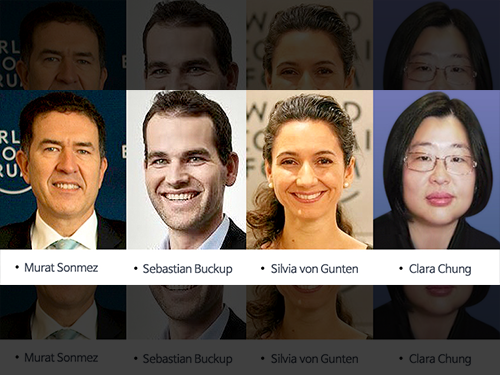 KAIST-WEF Roundtable on Inclusive Growth and Job Creation
The World Economic Forum (WEF) will join KAIST in an effort to address sweeping global problems in the wake of the Fourth Industrial Revolution. The two will co-host a roundtable on ‘Shaping Korea’s Priorities for Inclusive Growth and Job Creation in the Fourth Industrial Revolution’ on October 13 at Lotte Hotel in Seoul.
The roundtable will bring together leaders from government, industry, universities, and non-profit civic organizations to have an in-depth discussion on a thought-provoking agenda of inclusive growth and job creation which scientific and technological changes will bring about. The event will provide a platform to explore practical collaboration and innovative strategies for better job creation and innovation ecosystems.
The two will also sign an MOU for collaboration between the Fourth Industrial Revolution Information Center (FIRIC) of KAIST and the WEF Center for the Fourth Industrial Revolution (C4IR).
President Sung-Chul Shin of KAIST and the Head of the WEF Center for the Fourth Industrial Revolution, Murat Sonmez, will lead the panel discussion titled ‘Inclusive Growth and the Fourth Industrial Revolution’ which will be attended by leaders from government, industry, and non-profit civic organizations.
At the breakout sessions, the topics will be “Future Jobs” and the “Creation of Innovation Ecosystems”. Additionally, a discussion on the “SME 4.0 Initiative”, which is a program pushed forward by KAIST in collaboration with local governments, will talk about job creation through innovation in small and medium-sized enterprises (SMEs). The WEF will introduce their two-year activities and research on the Fourth Industrial Revolution, which have great potential and a high possibility of successfully undergoing the revolution, to Korea.
Since WEF Executive Chairman Klaus Schwab brought up the topic of the Fourth Industrial Revolution, the WEF has been leading agenda topics and discussions on high-profile matters, including ‘technology-driven but human-centered inclusive growth’ in predicting the future of jobs.
The WEF is a nonprofit organization committed to addressing the world’s weightiest problems. It is best known for its annual meetings in Davos, Switzerland, which attracts leaders from around the world. KAIST has been participating in this summit since 2009. President Shin will also attend the upcoming Davos summit next January. Distinguished Professor Sang Yup Lee who heads the KAIST Institute and the FIRIC is the co-chair of the Global Council on Biotechnology and a member of the Global Future Council on the Fourth Industrial Revolution at the WEF.
Moreover, President Shin and Mr. Sonmez will explain the background of the roundtable and share the results of the sessions at a joint news conference.
2017.09.28 View 12009
KAIST-WEF Roundtable on Inclusive Growth and Job Creation
The World Economic Forum (WEF) will join KAIST in an effort to address sweeping global problems in the wake of the Fourth Industrial Revolution. The two will co-host a roundtable on ‘Shaping Korea’s Priorities for Inclusive Growth and Job Creation in the Fourth Industrial Revolution’ on October 13 at Lotte Hotel in Seoul.
The roundtable will bring together leaders from government, industry, universities, and non-profit civic organizations to have an in-depth discussion on a thought-provoking agenda of inclusive growth and job creation which scientific and technological changes will bring about. The event will provide a platform to explore practical collaboration and innovative strategies for better job creation and innovation ecosystems.
The two will also sign an MOU for collaboration between the Fourth Industrial Revolution Information Center (FIRIC) of KAIST and the WEF Center for the Fourth Industrial Revolution (C4IR).
President Sung-Chul Shin of KAIST and the Head of the WEF Center for the Fourth Industrial Revolution, Murat Sonmez, will lead the panel discussion titled ‘Inclusive Growth and the Fourth Industrial Revolution’ which will be attended by leaders from government, industry, and non-profit civic organizations.
At the breakout sessions, the topics will be “Future Jobs” and the “Creation of Innovation Ecosystems”. Additionally, a discussion on the “SME 4.0 Initiative”, which is a program pushed forward by KAIST in collaboration with local governments, will talk about job creation through innovation in small and medium-sized enterprises (SMEs). The WEF will introduce their two-year activities and research on the Fourth Industrial Revolution, which have great potential and a high possibility of successfully undergoing the revolution, to Korea.
Since WEF Executive Chairman Klaus Schwab brought up the topic of the Fourth Industrial Revolution, the WEF has been leading agenda topics and discussions on high-profile matters, including ‘technology-driven but human-centered inclusive growth’ in predicting the future of jobs.
The WEF is a nonprofit organization committed to addressing the world’s weightiest problems. It is best known for its annual meetings in Davos, Switzerland, which attracts leaders from around the world. KAIST has been participating in this summit since 2009. President Shin will also attend the upcoming Davos summit next January. Distinguished Professor Sang Yup Lee who heads the KAIST Institute and the FIRIC is the co-chair of the Global Council on Biotechnology and a member of the Global Future Council on the Fourth Industrial Revolution at the WEF.
Moreover, President Shin and Mr. Sonmez will explain the background of the roundtable and share the results of the sessions at a joint news conference.
2017.09.28 View 12009 -
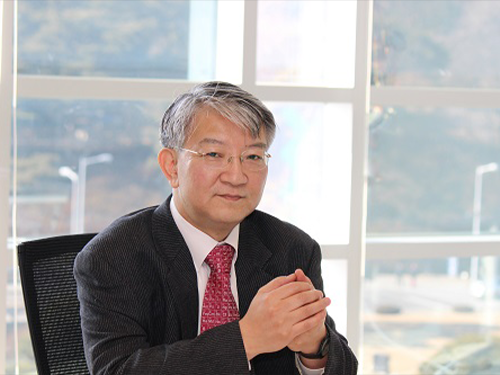 Professor Lee Co-chairs the Global Future Councils on Biotechnology of the WEF
The World Economic Forum (WEF) established a new global network of the world’s leading experts, “The Annual Meeting of the Global Future Councils,” to explore innovative solutions for the most pressing global challenges. The Councils’ first meeting took place on November 13-14, 2016, in Dubai, the United Arab Emirates (UAE). Some 25 nations joined as member states. The Councils have 35 committees.
Over 700 global leaders in business, government, civil society and academia gathered at the inaugural meeting to “develop ideas and strategies to prepare the world for the Fourth Industrial Revolution, with topics including smart cities, robotics, and the future of mobility,” according to a statement issued by the WEF.
Distinguished Professor Sang Yup Lee of Chemical and Biomolecular Engineering at KAIST was appointed to co-chair one of the Councils' committees, The Annual Meeting of the Global Future Councils on Biotechnology, for two years. The other chairperson is Dr. Feng Zhang, a professor of Biomedical Engineering at the Massachusetts Institute of Technology (MIT), who played a critical role in the development of optogenetics and CRISPR technologies.
The Biotechnology Committee consists of 24 globally recognized professionals in life sciences, law, ethics and policy including Thomas Connelly, the executive director of the American Chemical Society, Tina Fano, the executive vice president of Novozymes, and Mostafa Ronaghi, the chief technology officer of Illumina.
Professor Lee also serves as a committee member of The Annual Meeting of the Global Future Councils on the Fourth Industrial Revolution.
“Life sciences and engineering will receive more attention as a key element of the Fourth Industrial Revolution that the global society as a whole has been experiencing now. Together with thought leaders gathered worldwide, I will join the international community’s concerted efforts to address issues of importance that impact greatly on the future of humanity,” Professor Lee said.
In addition, Professor Lee received the James E. Bailey Award 2016 from The Society for Biological Engineering on November 15, 2016. He is the first Asian researcher to be recognized for his contributions to the field of biotechnology.
2016.11.15 View 11525
Professor Lee Co-chairs the Global Future Councils on Biotechnology of the WEF
The World Economic Forum (WEF) established a new global network of the world’s leading experts, “The Annual Meeting of the Global Future Councils,” to explore innovative solutions for the most pressing global challenges. The Councils’ first meeting took place on November 13-14, 2016, in Dubai, the United Arab Emirates (UAE). Some 25 nations joined as member states. The Councils have 35 committees.
Over 700 global leaders in business, government, civil society and academia gathered at the inaugural meeting to “develop ideas and strategies to prepare the world for the Fourth Industrial Revolution, with topics including smart cities, robotics, and the future of mobility,” according to a statement issued by the WEF.
Distinguished Professor Sang Yup Lee of Chemical and Biomolecular Engineering at KAIST was appointed to co-chair one of the Councils' committees, The Annual Meeting of the Global Future Councils on Biotechnology, for two years. The other chairperson is Dr. Feng Zhang, a professor of Biomedical Engineering at the Massachusetts Institute of Technology (MIT), who played a critical role in the development of optogenetics and CRISPR technologies.
The Biotechnology Committee consists of 24 globally recognized professionals in life sciences, law, ethics and policy including Thomas Connelly, the executive director of the American Chemical Society, Tina Fano, the executive vice president of Novozymes, and Mostafa Ronaghi, the chief technology officer of Illumina.
Professor Lee also serves as a committee member of The Annual Meeting of the Global Future Councils on the Fourth Industrial Revolution.
“Life sciences and engineering will receive more attention as a key element of the Fourth Industrial Revolution that the global society as a whole has been experiencing now. Together with thought leaders gathered worldwide, I will join the international community’s concerted efforts to address issues of importance that impact greatly on the future of humanity,” Professor Lee said.
In addition, Professor Lee received the James E. Bailey Award 2016 from The Society for Biological Engineering on November 15, 2016. He is the first Asian researcher to be recognized for his contributions to the field of biotechnology.
2016.11.15 View 11525 -
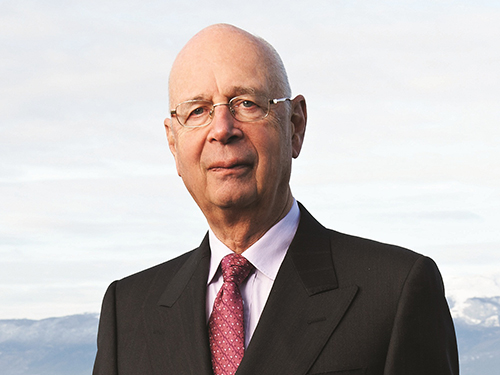 Klaus Schwab to Receive Doctorate from KAIST University
Courtesy of Press Release from the World Economic Forum:
Klaus Schwab to Receive Doctorate from KAIST University
KAIST University to confer Doctorate to World Economic Forum Executive Chairman and Founder Klaus Schwab
The ceremony will take place on 7 September at KAIST University, Daejeon, South Korea
For more information: http://wef.ch/KlausSchwab
Geneva, Switzerland, 26 August 2015 – Professor Klaus Schwab, Founder and Executive Chairman of the World Economic Forum, will be honoured on Monday 7 September by the Korea Advanced Institute of Science and Technology (KAIST), with his 14th honorary doctorate.
This honour will be bestowed on him in recognition of his work in the field of science, in particular his efforts to promote corporate social responsibility and for the concept of multistakeholder cooperation, which he originated in 1971.
Before creating the World Economic Forum, Professor Schwab had a distinctive academic career, earning two doctorates – one in engineering from the Swiss Federal Institute of Technology (ETH) in Zurich and the other in economics (summa cum laude) from the University of Fribourg, Switzerland. He also studied at Harvard University, where he earned a Master in Public Administration. In 1972 he became one of the youngest professors at the University of Geneva, where he taught business policy for over 30 years.
The ceremony will be attended by over 200 students, KAIST faculty members, Jang-Moo Lee, Chairman of the KAIST Board of Trustees, and Mayor Seon-Taek Kwon of Daejeon. “Klaus Schwab, through his forward-looking vision and outstanding leadership, has cultivated the World Economic Forum into a global organization, contributing significantly to improving the global economy as well as to resolving international conflicts,” said Sung-Mo “Steve” Kang, President of KAIST.
“It is a great honour to receive this honorary doctoral degree from KAIST, an institution which is known for academic excellence and the role it has played in helping South Korea achieve the level of modernization in a matter of decades that the western world took over a century to achieve,” Professor Schwab said.
At the ceremony, Professor Schwab will give a speech on the “Impact of Disruptive Forces on Our World” and will elaborate on how technological and geopolitical development is shaping global, regional, national and industry agendas.
2015.09.09 View 9303
Klaus Schwab to Receive Doctorate from KAIST University
Courtesy of Press Release from the World Economic Forum:
Klaus Schwab to Receive Doctorate from KAIST University
KAIST University to confer Doctorate to World Economic Forum Executive Chairman and Founder Klaus Schwab
The ceremony will take place on 7 September at KAIST University, Daejeon, South Korea
For more information: http://wef.ch/KlausSchwab
Geneva, Switzerland, 26 August 2015 – Professor Klaus Schwab, Founder and Executive Chairman of the World Economic Forum, will be honoured on Monday 7 September by the Korea Advanced Institute of Science and Technology (KAIST), with his 14th honorary doctorate.
This honour will be bestowed on him in recognition of his work in the field of science, in particular his efforts to promote corporate social responsibility and for the concept of multistakeholder cooperation, which he originated in 1971.
Before creating the World Economic Forum, Professor Schwab had a distinctive academic career, earning two doctorates – one in engineering from the Swiss Federal Institute of Technology (ETH) in Zurich and the other in economics (summa cum laude) from the University of Fribourg, Switzerland. He also studied at Harvard University, where he earned a Master in Public Administration. In 1972 he became one of the youngest professors at the University of Geneva, where he taught business policy for over 30 years.
The ceremony will be attended by over 200 students, KAIST faculty members, Jang-Moo Lee, Chairman of the KAIST Board of Trustees, and Mayor Seon-Taek Kwon of Daejeon. “Klaus Schwab, through his forward-looking vision and outstanding leadership, has cultivated the World Economic Forum into a global organization, contributing significantly to improving the global economy as well as to resolving international conflicts,” said Sung-Mo “Steve” Kang, President of KAIST.
“It is a great honour to receive this honorary doctoral degree from KAIST, an institution which is known for academic excellence and the role it has played in helping South Korea achieve the level of modernization in a matter of decades that the western world took over a century to achieve,” Professor Schwab said.
At the ceremony, Professor Schwab will give a speech on the “Impact of Disruptive Forces on Our World” and will elaborate on how technological and geopolitical development is shaping global, regional, national and industry agendas.
2015.09.09 View 9303 -
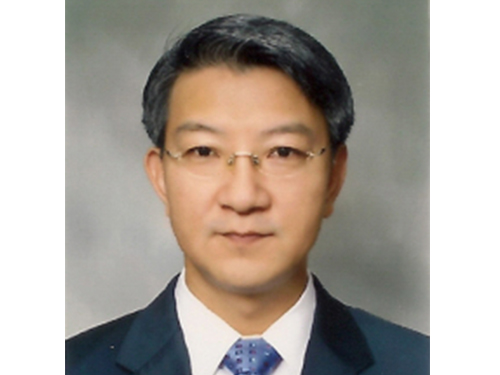 Distinguished Professor Sang Yup Lee Attends World Economic Forum's Workshop
Sang Yup Lee, Distinguished Professor of Chemical and Biomolecular Engineering at KAIST was invited to attend the Technology Pioneer and Global Growth Company CEO Workshop hosted by the World Economic Forum (WEF) on June 19-20, 2014 in San Francisco. During the workshop, Professor Lee joined a discussion on “disruptive technologies” as a panelist.
Currently serving for the evaluation committee that selects technology pioneers for the workshop, during the discussion, Professor Lee identified important issues facing humanity, analyzed the issues through forecasting, and presented converging disruptive technologies that provide solutions to the problems. He also shared the “ten emerging technologies” announced by the Global Agenda Council on Emerging Technologies, WEF and the Korean government’s technology innovation strategies adopted to achieve its economic development policy called creative economy.
2014.06.22 View 10463
Distinguished Professor Sang Yup Lee Attends World Economic Forum's Workshop
Sang Yup Lee, Distinguished Professor of Chemical and Biomolecular Engineering at KAIST was invited to attend the Technology Pioneer and Global Growth Company CEO Workshop hosted by the World Economic Forum (WEF) on June 19-20, 2014 in San Francisco. During the workshop, Professor Lee joined a discussion on “disruptive technologies” as a panelist.
Currently serving for the evaluation committee that selects technology pioneers for the workshop, during the discussion, Professor Lee identified important issues facing humanity, analyzed the issues through forecasting, and presented converging disruptive technologies that provide solutions to the problems. He also shared the “ten emerging technologies” announced by the Global Agenda Council on Emerging Technologies, WEF and the Korean government’s technology innovation strategies adopted to achieve its economic development policy called creative economy.
2014.06.22 View 10463 -
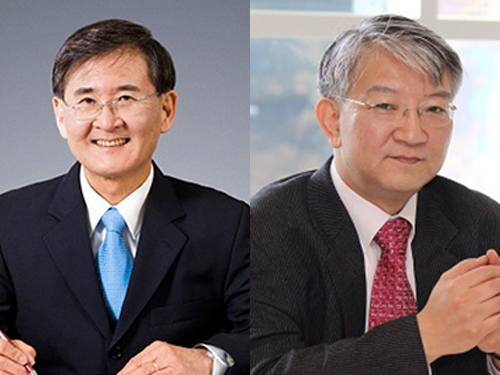 KAIST Participates in the 2014 Davos Forum on January 22-25 in Switzerland
Through the sessions of the Global University Leaders Forum, IdeasLab, and Global Agenda Councils on Biotechnology, KAIST participants will actively engage with global leaders in the discussion of issues on education innovation and technological breakthroughs.
The 2014 Annual Meeting of the World Economic Forum (WEF), known as the Davos Forum, will kick off on January 22-25 in Davos-Klosters, Switzerland, under the theme of "The Reshaping of the World: Consequences for Society, Politics, and Business." Each year, the Forum attracts about 2,500 distinguished leaders from all around the world and provides an open platform to identify the current and emerging challenges facing the global community and to develop ideas and actions necessary to respond to such challenges.
President Sung-Mo Steve Kang and Distinguished Professor Sang Yup Lee from the Department of Chemical and Biomolecular Engineering, KAIST, will attend the Forum and engage in a series of dialogues on such issues as Massive Open Online Courses, new paradigms for universities and researchers, the transformation of higher education, the role and value of scientific discoveries, and the impact of biotechnology on the future of society and business.
At the session entitled "New Paradigms for Universities of the Future" hosted by the Global University Leaders Forum (GULF), President Kang will introduce KAIST"s ongoing online education program, Education 3.0. GULF was created in 2006 by WEF, which is a small community of the presidents and senior representatives of the top universities in the world.
Implemented in 2012, Education 3.0 incorporates advanced information and communications technology (ICT) to offer students and teachers a learner-based, team-oriented learning and teaching environment. Under Education 3.0, students study online and meet in groups with a professor for in-depth discussions, collaboration, and problem-solving. KAIST plans to expand the program to embrace the global community in earnest by establishing Education 3.0 Global in order to have interactive real-time classes for students and researchers across regions and cultures.
President Kang will also present a paper entitled "Toward Socially Responsible Technology: KAIST"s Approach to Integrating Social and Behavioral Perspectives into Technology Development" at another session of GULF called "Seeking New Approaches to Critical Global Challenges." In the paper, President Kang points out that notwithstanding the many benefits we enjoy from the increasingly interconnected world, digital media may pose a threat to become a new outlet for social problems, for example, Internet or digital addiction.
Experts say that early exposure to digital devices harms the healthy development of cognitive functions, emotions, and social behavior. President Kang will introduce KAIST"s recent endeavor to develop a non-intrusive technology to help prevent digital addiction, which will ultimately be embedded in the form of a virtual coach or mentor that helps and guides people under risk to make constructive use of digital devices. President Kang stresses the fundamental shift in the science and technology development paradigm from research and development (R&D) to a research and solution development (R&SD), taking serious consideration of societal needs, quality of life, and social impacts when conducting research.
Professor Sang Yup Lee will moderate the IdeasLab session at the Davos Forum entitled "From Lab to Life with the California Institute of Technology (Caltech)." Together with scientists from Caltech, he will discuss scientific breakthroughs that transform institutions, industries, and individuals in the near future, such as the development of damage-tolerant lightweight materials with nanotechnology, the ability to read and write genomes, and wireless lab-in-the-body monitors. In addition, he will meet global business leaders at the session of "Sustainability, Innovation, and Growth" and speak about how emerging technologies, biotechnology in particular, will transform future societies, business, and industries.
As a current special adviser of the World Economic Forum"s (WEF) Chemicals Industry Community, Professor Lee will meet global chairs and chief executive officers of chemical companies and discuss ways to advance the industry to become more bio-based and environmentally friendly. He served as a founding chairman of WEF"s Global Agenda Councils on Biotechnology in 2013.
President Sung-Mo Steve Kang Distinguished Professor Sang Yup Lee
2014.01.17 View 12812
KAIST Participates in the 2014 Davos Forum on January 22-25 in Switzerland
Through the sessions of the Global University Leaders Forum, IdeasLab, and Global Agenda Councils on Biotechnology, KAIST participants will actively engage with global leaders in the discussion of issues on education innovation and technological breakthroughs.
The 2014 Annual Meeting of the World Economic Forum (WEF), known as the Davos Forum, will kick off on January 22-25 in Davos-Klosters, Switzerland, under the theme of "The Reshaping of the World: Consequences for Society, Politics, and Business." Each year, the Forum attracts about 2,500 distinguished leaders from all around the world and provides an open platform to identify the current and emerging challenges facing the global community and to develop ideas and actions necessary to respond to such challenges.
President Sung-Mo Steve Kang and Distinguished Professor Sang Yup Lee from the Department of Chemical and Biomolecular Engineering, KAIST, will attend the Forum and engage in a series of dialogues on such issues as Massive Open Online Courses, new paradigms for universities and researchers, the transformation of higher education, the role and value of scientific discoveries, and the impact of biotechnology on the future of society and business.
At the session entitled "New Paradigms for Universities of the Future" hosted by the Global University Leaders Forum (GULF), President Kang will introduce KAIST"s ongoing online education program, Education 3.0. GULF was created in 2006 by WEF, which is a small community of the presidents and senior representatives of the top universities in the world.
Implemented in 2012, Education 3.0 incorporates advanced information and communications technology (ICT) to offer students and teachers a learner-based, team-oriented learning and teaching environment. Under Education 3.0, students study online and meet in groups with a professor for in-depth discussions, collaboration, and problem-solving. KAIST plans to expand the program to embrace the global community in earnest by establishing Education 3.0 Global in order to have interactive real-time classes for students and researchers across regions and cultures.
President Kang will also present a paper entitled "Toward Socially Responsible Technology: KAIST"s Approach to Integrating Social and Behavioral Perspectives into Technology Development" at another session of GULF called "Seeking New Approaches to Critical Global Challenges." In the paper, President Kang points out that notwithstanding the many benefits we enjoy from the increasingly interconnected world, digital media may pose a threat to become a new outlet for social problems, for example, Internet or digital addiction.
Experts say that early exposure to digital devices harms the healthy development of cognitive functions, emotions, and social behavior. President Kang will introduce KAIST"s recent endeavor to develop a non-intrusive technology to help prevent digital addiction, which will ultimately be embedded in the form of a virtual coach or mentor that helps and guides people under risk to make constructive use of digital devices. President Kang stresses the fundamental shift in the science and technology development paradigm from research and development (R&D) to a research and solution development (R&SD), taking serious consideration of societal needs, quality of life, and social impacts when conducting research.
Professor Sang Yup Lee will moderate the IdeasLab session at the Davos Forum entitled "From Lab to Life with the California Institute of Technology (Caltech)." Together with scientists from Caltech, he will discuss scientific breakthroughs that transform institutions, industries, and individuals in the near future, such as the development of damage-tolerant lightweight materials with nanotechnology, the ability to read and write genomes, and wireless lab-in-the-body monitors. In addition, he will meet global business leaders at the session of "Sustainability, Innovation, and Growth" and speak about how emerging technologies, biotechnology in particular, will transform future societies, business, and industries.
As a current special adviser of the World Economic Forum"s (WEF) Chemicals Industry Community, Professor Lee will meet global chairs and chief executive officers of chemical companies and discuss ways to advance the industry to become more bio-based and environmentally friendly. He served as a founding chairman of WEF"s Global Agenda Councils on Biotechnology in 2013.
President Sung-Mo Steve Kang Distinguished Professor Sang Yup Lee
2014.01.17 View 12812 -
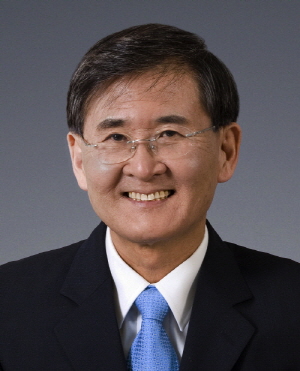 The World Economic Forum Invites KAIST to 2014 Davos Forum
President Steve Kang and Distinguished Professor Sang Yup Lee have been invited by the World Economic Forum (WEF) to attend its annual meeting slated for January 22-25, 2014 in Davos-Klosters, Switzerland.
The president will also join the Global University Leaders Forum (GULF) to be held during the annual meeting. The GULF consists of leading research universities throughout the world, at which President Kang will address agenda related to higher education and research.
From September 11th to 13th, KAIST was invited to the WEF’s 2013 Summer Davos Forum held in Dalian, China. The Summer Davos Forum is recognized as a barometer of the world economy, and KAIST hosted three sessions there.
In a session titled “Smart Regulations,” Professor Sang Yup Lee hosted presentations and discussions under the topic of “How regulation models can strengthen technical innovation and expansion.” President Steve Kang, Peter Sands, CEO of Standard Chartered Bank Group, Mark Weinberger, CEO of Ernest & Young, and Peter Terium, CEO of RWE, participated in the discussions.
The KAIST delegates also presented and participated in a session titled “From Trade Center to Innovative Hub” to discuss how to lead innovations in Asia, as well as “Marine Resources: Finding New Frontier” to address issues of how to develop and manage oceanic resources for potential growth.
President Kang said, “The World Economic Forum allows us to introduce the results of our innovative and creative research to global leaders and to demonstrate that our global position continues to grow.”
The WEF has been hosting Summer Davos Forum in China since 2007. About 1,500 participants from over 90 countries joined in this year’s summer forum under the theme of “Innovation: Inevitable Mainstream.” New strategies for innovations and solutions for global threats were suggested through presentations and discussions in 125 sessions.
The World Economic Forum (WEF) is an independent, international, and non-profit organization based in Geneva, Switzerland. It is committed to improving the state of the world by engaging business, political, academic, and government leaders to shape global, regional and industry agenda.
Among the meetings and forums organized by the WEF, its annual meeting held each January in Davos, a.k.a. the Davos Forum, has been the best known gathering. The Davos Forum brings together some 2,500 top business leaders, international political leaders, selected intellectuals and journalists to discuss the most pressing issues facing the world including health and environment.
2013.11.07 View 13159
The World Economic Forum Invites KAIST to 2014 Davos Forum
President Steve Kang and Distinguished Professor Sang Yup Lee have been invited by the World Economic Forum (WEF) to attend its annual meeting slated for January 22-25, 2014 in Davos-Klosters, Switzerland.
The president will also join the Global University Leaders Forum (GULF) to be held during the annual meeting. The GULF consists of leading research universities throughout the world, at which President Kang will address agenda related to higher education and research.
From September 11th to 13th, KAIST was invited to the WEF’s 2013 Summer Davos Forum held in Dalian, China. The Summer Davos Forum is recognized as a barometer of the world economy, and KAIST hosted three sessions there.
In a session titled “Smart Regulations,” Professor Sang Yup Lee hosted presentations and discussions under the topic of “How regulation models can strengthen technical innovation and expansion.” President Steve Kang, Peter Sands, CEO of Standard Chartered Bank Group, Mark Weinberger, CEO of Ernest & Young, and Peter Terium, CEO of RWE, participated in the discussions.
The KAIST delegates also presented and participated in a session titled “From Trade Center to Innovative Hub” to discuss how to lead innovations in Asia, as well as “Marine Resources: Finding New Frontier” to address issues of how to develop and manage oceanic resources for potential growth.
President Kang said, “The World Economic Forum allows us to introduce the results of our innovative and creative research to global leaders and to demonstrate that our global position continues to grow.”
The WEF has been hosting Summer Davos Forum in China since 2007. About 1,500 participants from over 90 countries joined in this year’s summer forum under the theme of “Innovation: Inevitable Mainstream.” New strategies for innovations and solutions for global threats were suggested through presentations and discussions in 125 sessions.
The World Economic Forum (WEF) is an independent, international, and non-profit organization based in Geneva, Switzerland. It is committed to improving the state of the world by engaging business, political, academic, and government leaders to shape global, regional and industry agenda.
Among the meetings and forums organized by the WEF, its annual meeting held each January in Davos, a.k.a. the Davos Forum, has been the best known gathering. The Davos Forum brings together some 2,500 top business leaders, international political leaders, selected intellectuals and journalists to discuss the most pressing issues facing the world including health and environment.
2013.11.07 View 13159 -
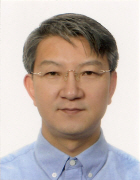 Professor Lee Sang Yeop Nominated the Chairman of Emerging Technologies Global Agenda Council of the World Economic Forum
Professor Lee Sang Yeop, Dean of College Life Science & Bioengineering, was appointed as the chairman of the Emerging Technologies Global Agenda Council of the World Economic Forum.
He will be in office till the 31st of August 2012, exactly 1 year from the date of his appointment.
The World Economic Forum (WEF) is a ‘think tank’ consisting of world leaders in various fields like economics, politics, and policies and has created the ‘Global Agenda Council’ to solve the problems mankind faces in achieving environmentally sustainable growth and suggest a collective vision and strategy.
The committee to be chaired by Professor Lee (Emerging Technologies Global Agenda Council) will discuss the direction in which the fields of biological engineering, nanotechnology, and IT (information technology) should develop and discuss the possible impact these fields will have on the society.
Professor Lee commented that, “I am extremely happy to be appointed as the chair of the Emerging Technologies Global Agenda Council at the World Economic Forum which is a gathering of world class leaders” and that “it is a great opportunity to spread Korea’s success and lessons in the advancement of science and technology.”
Professor Lee is the creator of the field of system metabolism engineering and is making great strides in manipulating the microorganism’s metabolic pathways on a systems scale to make changing chemicals derived from oil into eco-friendly and bio-based products.
2011.09.20 View 11204
Professor Lee Sang Yeop Nominated the Chairman of Emerging Technologies Global Agenda Council of the World Economic Forum
Professor Lee Sang Yeop, Dean of College Life Science & Bioengineering, was appointed as the chairman of the Emerging Technologies Global Agenda Council of the World Economic Forum.
He will be in office till the 31st of August 2012, exactly 1 year from the date of his appointment.
The World Economic Forum (WEF) is a ‘think tank’ consisting of world leaders in various fields like economics, politics, and policies and has created the ‘Global Agenda Council’ to solve the problems mankind faces in achieving environmentally sustainable growth and suggest a collective vision and strategy.
The committee to be chaired by Professor Lee (Emerging Technologies Global Agenda Council) will discuss the direction in which the fields of biological engineering, nanotechnology, and IT (information technology) should develop and discuss the possible impact these fields will have on the society.
Professor Lee commented that, “I am extremely happy to be appointed as the chair of the Emerging Technologies Global Agenda Council at the World Economic Forum which is a gathering of world class leaders” and that “it is a great opportunity to spread Korea’s success and lessons in the advancement of science and technology.”
Professor Lee is the creator of the field of system metabolism engineering and is making great strides in manipulating the microorganism’s metabolic pathways on a systems scale to make changing chemicals derived from oil into eco-friendly and bio-based products.
2011.09.20 View 11204